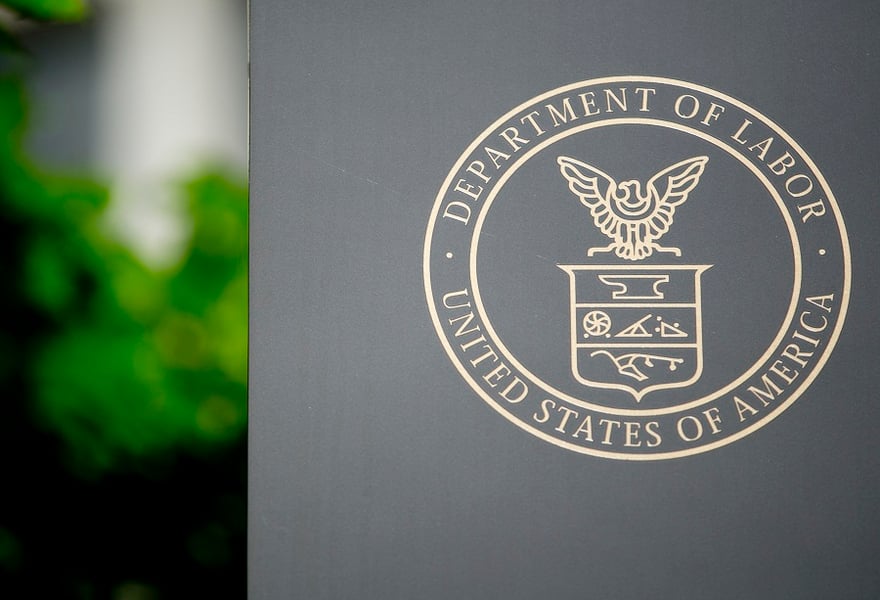

The Employee Benefits Security Administration successfully recovered more than $1.4 billion for workers, their families, and benefit plans during the fiscal year 2023, the agency revealed Tuesday.
According to the division of the Department of Labor focused on benefit plans, formal enforcement actions alone accounted for more than half of the total recovered last year, amounting to $844.7 million.
“In total, EBSA's enforcement program helped 5,690 terminated vested participants in defined benefit pension plans collect benefits of $429.2 million owed to them,” the agency said in a statement.
Monetary benefit recoveries from informal complaint resolutions accounted for $444.1 million, which arose from the resolution of more than 197,000 inquiries through EBSA's benefits advisors.
"I am incredibly proud to lead this agency that, despite its small size and colossal responsibilities, consistently delivers for America’s workers, retirees, and their families, year after year," said Lisa Gomez, assistant secretary for employee benefits security, who took the helm in 2022.
EBSA’s $1.4 billion recovery haul last year is unchanged from 2022, but down sharply from the $2.4 billion in recoveries it achieved in 2021.
Recoveries from EBSA’s voluntary fiduciary correction and abandoned plan programs were minor but important contributors, representing $84.5 million and $61.2 million, respectively.
Civil investigations played a crucial role in those initiatives, EBSA said, with 731 investigations closed. Of those investigations, 505 were closed with results – leading to a 69% success rate with substantive outcomes – while 50 investigations were referred for litigation.
The agency also managed to close 196 criminal investigations for the 2023 fiscal year. That included 77 individuals – including plan officials, corporate officers, and service providers – who pled guilty or were convicted. Of those, EBSA said 60 individuals were indicted for offenses related to employee benefit plans.
For its 2023 fiscal year, EBSA received 1,192 applications under the voluntary fiduciary correction program, which gives plan officials who identify certain ERISA violations a chance to remedy the breaches without triggering an enforcement action.
Under a related initiative, the delinquent filer voluntary compliance program, EBSA got 18,955 filings.
Among various key areas it focused on, EBSA highlighted the elimination of illegal benefit plan provisions, enhancing fiduciary governance, and expanding access to mental health benefits.
"These victories are clear evidence of the Department of Labor’s continued leadership in keeping President Biden’s promise to be the most pro-worker administration in history," Gomez said.

Chasing productivity is one thing, but when you're cutting corners, missing details, and making mistakes, it's time to take a step back.

It is not clear how many employees will be affected, but none of the private partnership’s 20,000 financial advisors will see their jobs at risk.

The historic summer sitting saw a roughly two-thirds pass rate, with most CFP hopefuls falling in the under-40 age group.

"The greed and deception of this Ponzi scheme has resulted in the same way they have throughout history," said Daniel Brubaker, U.S. Postal Inspection Service inspector in charge.

Elsewhere, an advisor formerly with a Commonwealth affiliate firm is launching her own independent practice with an Osaic OSJ.
Stan Gregor, Chairman & CEO of Summit Financial Holdings, explores how RIAs can meet growing demand for family office-style services among mass affluent clients through tax-first planning, technology, and collaboration—positioning firms for long-term success
Chris Vizzi, Co-Founder & Partner of South Coast Investment Advisors, LLC, shares how 2025 estate tax changes—$13.99M per person—offer more than tax savings. Learn how to pass on purpose, values, and vision to unite generations and give wealth lasting meaning
